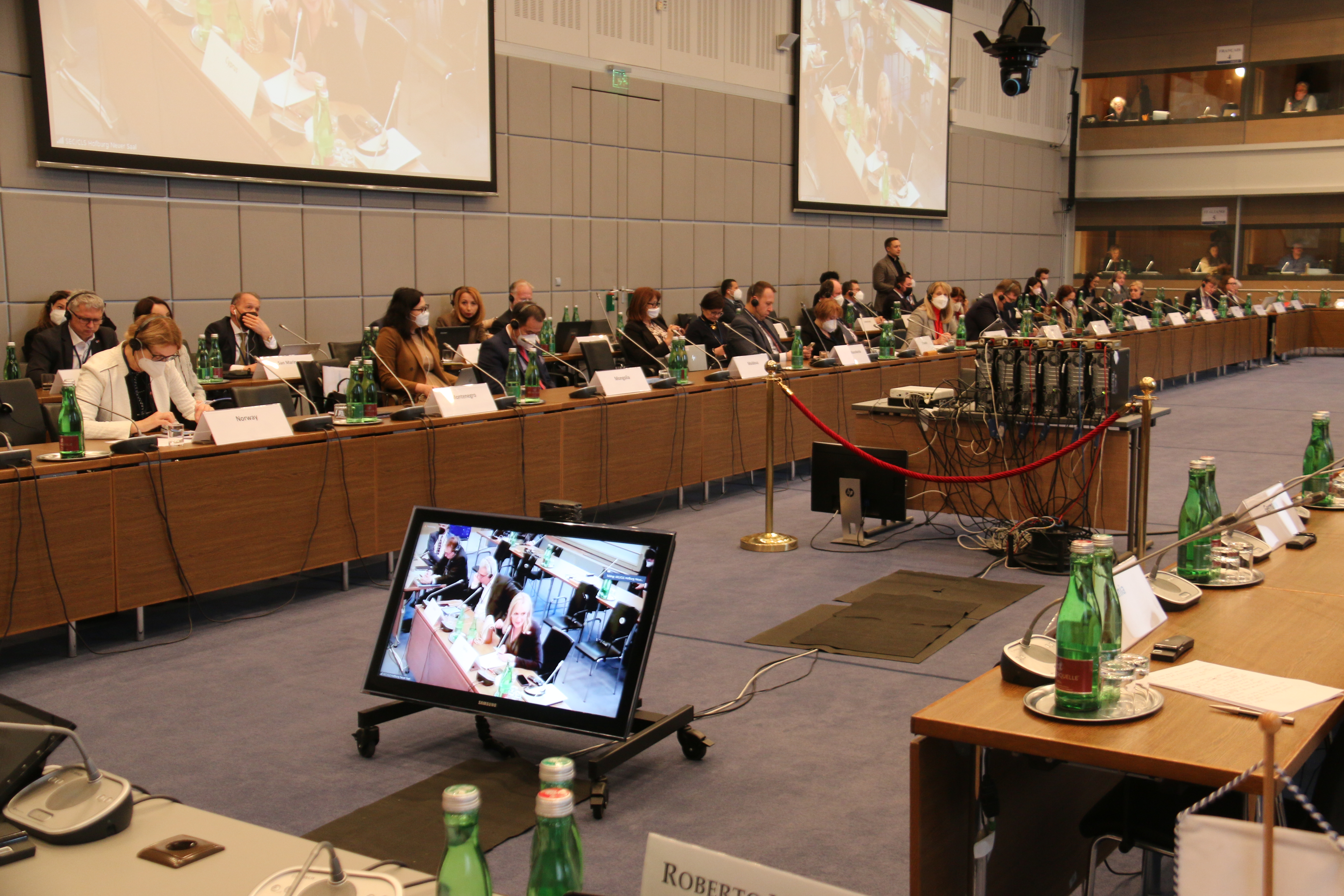Lithuania

BRIEFING – Contesting Russia: Lessons from Cen...
Oct 23, 2024Cannon House Office Building, Room 210 Stream live here For years, the countries of Central & Eastern Europe have been a critical warning system for the rest of Europe, sounding […]

35 Years After the Baltic Way: Regional Unity in the...
Aug 23, 2024On August 23, 1989, approximately two million people created a human chain from Tallinn to Vilnius to peacefully demonstrate their resistance to Soviet occupation. Held on the 50th anniversary of […]

European Energy Security Post-Russia
Jun 07, 2022Russia is weaponizing energy to prolong its unlawful invasion of Ukraine. Unfortunately, the sanctions that Europe and the United States have put in place have not been enough to curb […]
European Energy Security Focus of Upcoming Helsinki ...
Jun 02, 2022WASHINGTON—The Commission on Security and Cooperation in Europe, also known as the Helsinki Commission, today announced the following hearing: EUROPEAN ENERGY SECURITY POST-RUSSIA Tuesday, June 7, 2022 2:30 p.m. Watch […]

“Game-Changer”
Mar 17, 2022Russian dictator Vladimir Putin’s invasion of Ukraine has destroyed the international framework that has kept the peace in Europe since 1945, at a time when Baltic states Lithuania, Estonia, and […]
Helsinki Commission Recognizes Key Contributions fro...
Mar 08, 2022WASHINGTON—In light of Russia’s continued criminal war on the peaceful citizens of Ukraine, Helsinki Commission Chairman Sen. Ben Cardin (MD), Co-Chairman Rep. Steve Cohen (TN-09), Ranking Member Sen. Roger Wicker […]

At OSCE PA Winter Meeting, U.S. Legislators Unite wi...
Mar 07, 2022By Ryn Hintz, Max Kampelman Fellow From February 20 – 26, 2022, Helsinki Commission Co-Chairman Rep. Steve Cohen (TN-09) led a bipartisan Congressional delegation to the Winter Meeting of the […]
Foreign Affairs Committee Chairs of Lithuania, Eston...
Mar 07, 2022WASHINGTON—The Commission on Security and Cooperation in Europe, also known as the Helsinki Commission, today announced the following hearing: “GAME-CHANGER” The Baltics Under Pressure Thursday, March 17, 2022 10:00 a.m. […]
Co-Chairman Cohen Leads Bipartisan Congressional Del...
Feb 28, 2022WASHINGTON—Helsinki Commission Co-Chairman Rep. Steve Cohen (TN-09) last week led a bipartisan Congressional delegation to the Winter Meeting of the OSCE Parliamentary Assembly (PA) in Vienna, Austria, which focused almost […]

Co-Chairman Cohen Discusses European Unity Against R...
Feb 28, 2022Mr. Speaker, last week, I led a bipartisan group to visit Lithuania and the OSCE meeting in Vienna, Austria. In Lithuania, we met with the leaders and assured them of […]

